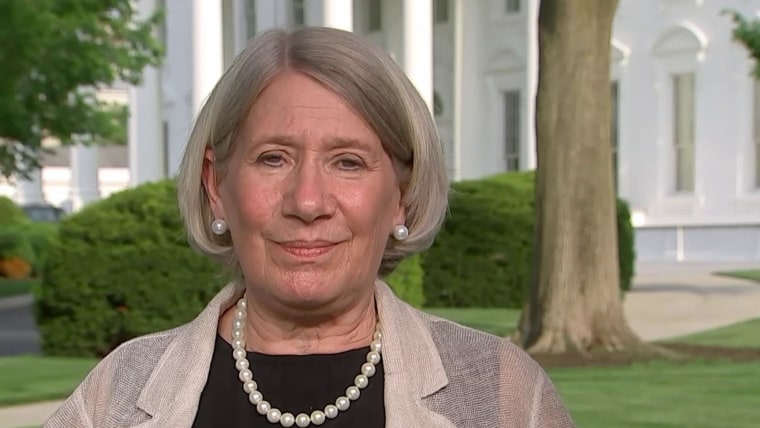
The 100th day of any administration is a major milestone. The first 100 days also offer a narrow but critical political window during which high approval ratings and political momentum can help usher in ambitious political agendas.
Day 101 is, practically speaking, no different than day 99. The work always continues.
This has certainly been true for President Joe Biden, who experienced a historic — and in many ways horrific — first 100 days unlike any other. Biden began his term with a public desperate for the Covid-19 pandemic to end and scrambling to find vaccination appointments, all while struggling to keep a job, pay rent and put food on the table.
Biden has thus far mostly delivered on his promise to bring relief to as many Americans as possible, through his Covid-19 stimulus bill and by delivering on his goal of 200 million vaccinations in 100 days. But every administration knows that day 101 is, practically speaking, no different than day 99. The work always continues.
As Biden’s administration heads into its next 100 days, it confronts an America that is by no means over the pandemic hump. The work continues, indeed — especially when it comes to health care and policy.
He can start with the broken and dysfunctional health care system that nearly collapsed under the weight of Covid-19 in 2020.
Starting Feb. 15, Biden allowed millions of uninsured Americans to purchase Affordable Care Act health insurance in a special enrollment period (outside of the usual window to buy health insurance). That window closes Aug. 15.
In addition, the recently enacted American Rescue Plan includes provisions that subsidize marketplace health insurance premiums for people who make below 150 percent of the federal poverty level. An individual making $19,000 will have no premium payments, and a family of four making $90,000 will see their premiums decrease by $200 per month.
Crushing out-of-pocket costs as well as premium increases will absolutely come back to haunt Biden.
But these subsidies and provisions will expire after two years, and crushing out-of-pocket costs as well as premium increases will absolutely come back to haunt Biden. A study published by The Commonwealth Fund in April 2020 found that “in 2017, 1 in 100 Americans under age 64 spent $5,000 or more out of pocket for medical services, and about 1 in 20 spent more than $1,700.” The pandemic has magnified the implications for lower- and middle-class Americans.
Solutions will not be easy. Biden is facing pressure from all sides and has already walked back bold prescription drug pricing language. Now is not the time to be cautious.
The administration should push for better drug prices as well as continuing to allow patients to be cared for in their home by video or have more time with their doctors to address prevention, something that, in our current model of health care, is neglected. Ironically, doctors are often paid more to manage the consequences of illnesses such as diabetes, heart disease and strokes than they are to prevent those illnesses from occurring in the first place.
In short, simply adding more people to the health insurance rolls, without properly fixing the system, may just make the problem worse.
Beyond health insurance, the Biden administration needs to get serious about heath equity.
It has already appointed diverse leaders such as Covid-19 Health Equity Task Force Chair Dr. Marcella Nunez-Smith and Secretary of Health and Human Services Xavier Becerra. And the White House has increased funding for programs such as those offered by the Office of Minority Health.
It may not be a super “sexy” topic area, and other public crises pull funding and media attention constantly. But health inequality in America has remained remarkably consistent — which is to say, consistently bad.
Black women are three times more likely to die giving birth compared to white women. Your zip code matters more than your genetic code when it comes to your health: Two people living 10 miles apart can have a 33-year difference in life expectancy.
Health inequality in America has remained remarkably consistent — which is to say, consistently bad.
And last but not least, Biden needs to take substance use and mental health infrastructure as seriously as he is taking bridges and tunnels.
The Biden administration has rightly called for billions in pandemic preparedness, but the number of deaths from drug overdoses claim many tens of thousands of deaths in a single year. According to research from the Treatment Advocacy Center, people with untreated mental illness are 16 times more likely to be killed by law enforcement.
We have deinstitutionalized mental health, moving away from the horrific asylums of decades long ago, but we have not adequately funded accessible community-based models of care. As a result, we are seeing record numbers of people with mild to severe mental illness.
Young people are struggling most with their mental health. Not only is the number of young people searching for help with their mental health increasing, but throughout the Covid-19 pandemic, children ages 11 to 17 were more likely than any other age group to have moderate to severe symptoms of anxiety and depression, Mental Health America reported.
At national inflection points — due to war, economic depression, civil unrest or a raging pandemic — the president is personally tested. Biden’s overall success will depend not only on how he handles the pandemic recovery but what kind of nation emerges from our months of virus, fear and death.
Dr. Kavita Patel, a primary care physician in Washington, D.C., is an MSNBC columnist and an NBC News/MSNBC contributor. She served in the Obama administration as director of policy for the Office of Intergovernmental Affairs and Public Engagement in the White House. A Brookings Institution nonresident fellow, she is the former managing director of clinical transformation at Brookings’ Center for Health Policy.


No comments:
Post a Comment